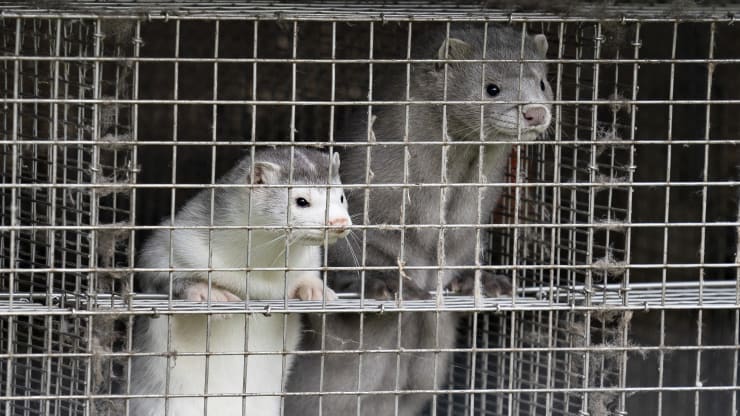As of publication time on November 17, COVID-19 has affected over 55 million people and caused over 1.3 million deaths worldwide. However, across the globe there have been newly discovered mutations in the virus. What will this mean for the efficiency of future vaccines?
Despite its common transmission via respiratory droplets, COVID-19 is not only limited to transmission between humans. Animals, including dogs, cats, tigers, lions, and mink can also contract SARS-CoV-2 (the virus that causes COVID-19). According to the World Health Organization (WHO), recent cases of COVID-19 in Denmark include “SARS-CoV-2 variants associated with farmed minks, including 12 cases with a unique variant” which were confirmed earlier in September.
This new development arose from reported COVID-19 outbreaks across mink farms in six countries: USA, Italy, Spain, Sweden, Netherlands, and Denmark. Despite being one of the main mink fur exporters globally, the Danish government has ordered a “mass cull of 15 million mink in farms nationwide.”
This is a preventative measure being taken by Denmark since mink act as a dangerous viral source, as they pose a threat for causing a spill-over event where the mutated virus is passed from mink to humans. Similarly, a “spill-back (human to mink transmission)” can also occur. The transmission of the virus between humans and animals raises a huge concern, as it can lead to genetic mutations within the virus.
“So far we’ve seen that the virus reacts differently in animals than it does in humans,” says Insiya Patel, a third-year visual arts student. “I still think a human vaccine should be created first so we’re protected, and then if need be we could create a vaccine for animals.”
In Denmark, researchers sequenced “viral samples from 40 mink farms and identified some 170 coronavirus variants,” in addition to 300 variants found in human viral samples, all of which can be traced back to mink.
“It does not appear, at this point, that the mutation that’s been identified in the minks is going to have an impact on vaccines and affect a vaccine-induced response.”
The viral samples revealed various mutations in the “gene encoding the COVID-19 spike protein,” the protein used to enter cells. Changes in the spike protein can affect the ability of the immune system to detect an infection.
Most concerning of all is a variant in the virus called “Cluster-5,” which contains “a unique combination of mutations” that have never been seen before. This Cluster-5 variant changes the virus by resulting in “three amino-acid changes and two delections in the spike protein.”
Another mink-related mutation is the Y453F mutation, which (like the Cluster-5) also creates a change in the spike protein’s amino acid. This is much more common, as seen in 300 sequences obtained from people infected in Denmark. The Y453F mutation, as one experimental study observed, causes the virus to be completely undetected by a “commercial monoclonal antibody,” meaning it is hidden from the immune system.
Preliminary research indicates that the variant originating from mink will lead to “decreased sensitivity to neutralizing antibodies.” This suggests that the viral variant may not be as responsive to treatments, thus lowering the efficacy of future vaccines. As of now, however, this is purely speculation, but the evidence compiled so far does seem to suggest that the mutation can “hinder the drug’s therapeutic effect in the body.”
Some leaders in the field hold a different view. Dr. Fauci, an expert on infectious disease, stated that: “It does not appear, at this point, that the mutation that’s been identified in the minks is going to have an impact on vaccines and affect a vaccine-induced response.” Maria Van Kekhove from WHO stated that such mutations are normal, and another WHO scientist also claimed that “COVID-19 mutations are not expected to alter vaccine efficacy.”
Because the research is still in its preliminary stages, it’s too early to confirm whether or not the viral variants will in fact decrease the efficacy of future vaccines. The advice from WHO that we should be heeding is to conduct virological studies in order to “further investigate any epidemiological changes in function of the virus in terms of its transmissibility and the severity of disease it causes.”
“It’s a scary thing hearing about how the virus is mutating and progressing. I feel like this will make it more difficult to come up with the proper vaccine that will be more effective for this virus,” states Dorsa Noushinfar, a second-year kinesiology student.




